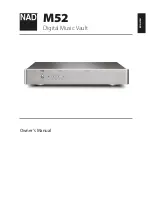
10
Initiating a charging cycle:
1.
Turn CP switch to A position and connect the adapter cable to the
charging station.
2.
Turn CP switch to B position and wait 3 to 5 seconds – in commercial
stations this may initiate a station to ask for payment information
3.
Turn CP switch to either C or D position depending on the type of a car
you wish to simulate (respectively with or without indoor charging area
ventilation requirement) to start the charging cycle.
Note
If the station does not begin the charging cycle, turn the CP switch to
position A. Then turn the CP switch to position B and wait 3 to
5 seconds. Then turn the CP switch to position C or D. Some
EV charging stations require a time delay to establish a proper
connection when CP State B is selected.
The red LED indicates that the charging station opened for the charging
cycle and voltage is present at the adapter terminals.
Verification of CP signal and the charging station’s preset maximum
charging current
Control Pilot function uses Pulse Width Modulation (PWM):
The purpose of this CP function is communication between a charging
station and a vehicle. The duty cycle of the PWM Pulse Width Modulation
signal defines the maximum available charging current.
For details of communication protocol please refer to IEC/EN 61851-1 and
the documentation of the manufacturer of the charging station.
CP output terminals are connected to CP and PE conductors of the charging
station under test via the test cable. The green socket is connected to PE.
These outputs are for connection of a meter with a duty cycle function or an
oscilloscope to check the waveform and amplitude of the CP signal.
Verification of the maximum charging current with a multimeter or
oscilloscope
Set the maximum charging current of the charging station using the
internal selection of the charging station itself (please follow therefore the
documentation of the manufacturer of the charging station). The value of
the maximum charging station current should not exceed the max current
allowed by the gauge of the charging cable, the gauge of the installed
electrical wires and breaker according to the National Electrical Code.
Testing maximum charging current:
1. Connect adapter to the charging station and start a charging process
by selecting either state C or D using rotary switch, depending on the
type of simulated car, to start the charging cycle.
2. Connect multimeter or oscilloscope set to Duty Cycle to the Control
Pilot (CP) terminals located on the top of the adapter. See Figure 3,
use items
2
and
3
. Make sure to connect COM input of the meter to
the Green (PE) output of the CP terminal.
3.
Read the duty cycle value and translate to maximum charging current
using the below formulas or a quick reference table (based on
IEC/EN 61851-1 standard).

































